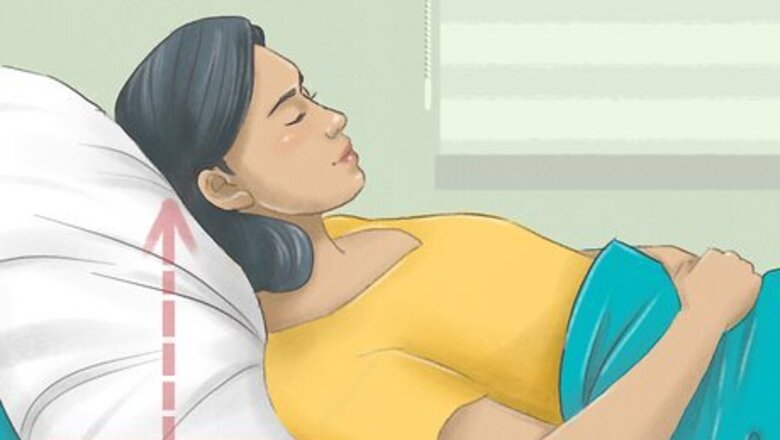
views
Keep your head propped up.
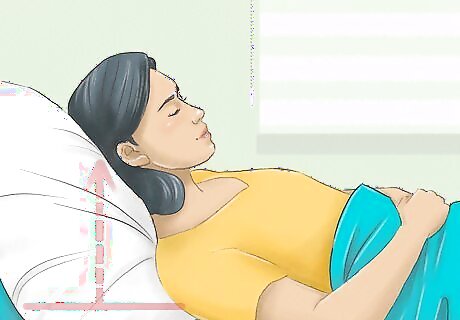
Lying flat while you’re nauseated could make you vomit. Rather than lying flat, put a few pillows underneath your head so it’s more elevated than your stomach. If you’d rather avoid lying down altogether, sit upright in a comfortable chair until you feel better. Instead of propping yourself up with pillows, you can put a wedge underneath the head of your mattress to elevate it.
Try acupressure.
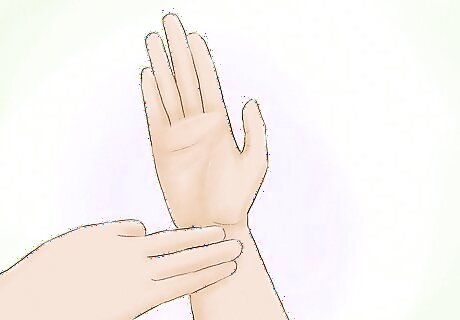
Pinch the pressure point near your wrist for instant relief. Hold your right hand out so your fingers point straight up and your palm faces you. Lay the index, middle, and ring finger on your left hand across your wrist so your ring finger is at the base of your palm. Press your thumb just below your index finger until you feel 2 tendons running up your arm. Apply firm pressure for 2–3 minutes before switching arms. This pressure point helps release muscle tension that might be making your stomach upset. Studies show that acupressure can be an effective alternative or addition to anti-nausea medications.
Have some ginger.

Ginger could relieve your stomach. You can chew on candied or pickled ginger slices, drink ginger tea, or try a powder or oil. Ginger doesn’t have serious adverse effects so it could be a great natural remedy to try out. Aim to have a 1,000 mg dose of ginger per day to help treat your symptoms. You may also be able to find ginger supplements in the vitamin section at your local pharmacy.
Use peppermint oil.

Peppermint calms stomach spasms that cause nausea. Whenever you get a bout of nausea, try taking 2–3 drops of peppermint oil. You can take it by itself, mix it in with your favorite drink, or add it to a meal. You could also try adding a few drops of peppermint oil into a diffuser if you want to try aromatherapy instead. Only use the recommended dose of peppermint oil on the packaging since taking more could be toxic and lead to more nausea and pain.
Try over-the-counter medication.

Antacids or motion sickness pills might alleviate your symptoms. Follow the dosage instructions on the packaging whenever you feel nauseated. If you think you have indigestion or your stomach feels upset, try an antacid to help reduce the acid and treat your symptoms. If you also feel a little dizzy or antacids don’t work, try a motion sickness pill instead. Talk to a doctor before taking or combining medications to make sure they’re right for you.
Stay hydrated.
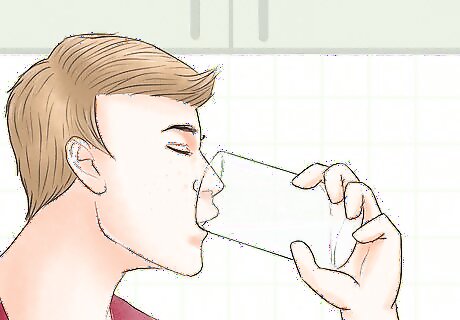
Your nausea will only get worse if you get dehydrated. Even though it may feel tough to keep liquids down, slowly drink some water to help regulate your body. Take little sips throughout the day rather than taking big gulps. Aim to have around 15.5 c (3.7 L) of water if you’re a man or 11.5 c (2.7 L) if you’re a woman. How much water you need every day varies depending on your environment, overall health, and level of physical activity. In general, drinking whenever you feel thirsty should be enough to keep you hydrated. This works especially well for nausea caused by heat since water helps cool your body down as well. Avoid alcohol since it will only make your nausea worse.
Have smaller meals.
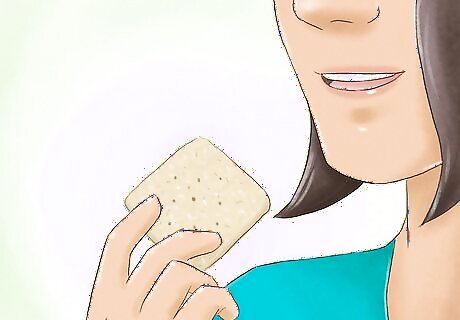
Too much food puts more pressure on your stomach. Spread a few meals throughout the day rather than waiting to enjoy a few large ones. Only have enough food until you feel satisfied, not until you’re completely stuffed. Otherwise, you may make your nausea worse. If you’re feeling hungry in between meals, try having a small snack to hold you over.
Eat bland foods.
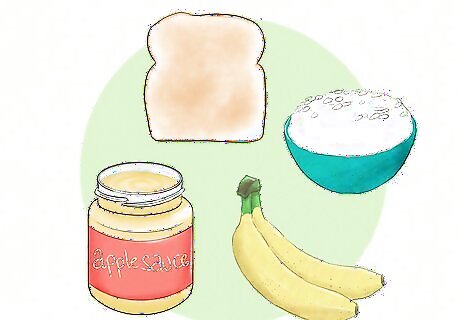
Unflavored foods are easier for your body to digest. Stick with the BRAT diet, where you only eat bananas, rice, applesauce, and toast. If you want a little more variety, try some plain chicken, soup broth, or unsalted crackers. Stay away from any seasonings or sauces that are rich, spicy, or sweet since they could make your stomach hurt even more. Skip foods that are greasy, spicy, or fried since they can irritate your stomach even more.
Steer clear of caffeine.
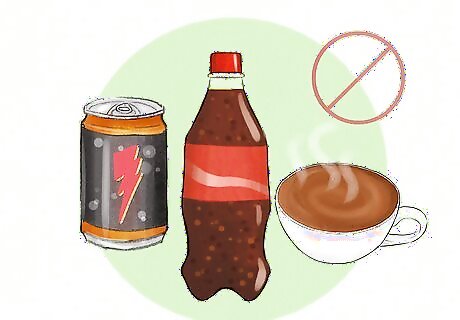
Caffeine upsets your stomach and might make you feel worse. Cut out any coffee, soda, energy drinks, or caffeinated tea from your diet whenever you’re dealing with nausea. If you want to keep enjoying those drinks, buy decaf options instead so they’re less harsh on your stomach.
Avoid strong odors.

Overpowering smells typically trigger nausea. Any strong odor, such as cooking smells, smoke, and perfume, could upset your stomach and make you nauseated. Try your best to stay out of areas where odors could build up and become overwhelming. If you can, open a window or ventilate the room while you get some fresh air.
Take it easy and relax.
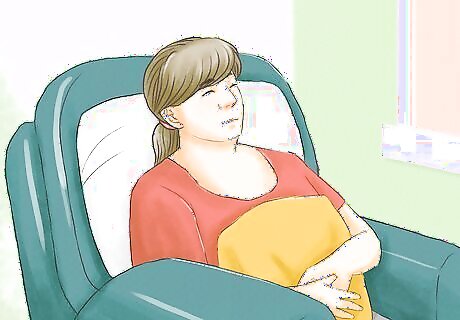
Being too active might worsen your nausea. Whenever your nausea acts up, take a break from what you’re doing and sit down for a few minutes. If you can’t go on a break, just avoid doing strenuous activities or moving around too much so you don’t upset your stomach more. Just take it slow until the feeling passes.
Ask your doctor about stopping medications.

Nausea is a common side effect for a lot of prescriptions. If you’re currently on a prescription, reach out to your doctor and ask them if nausea is a potential side effect. If it is, ask if you’re safe to temporarily stop taking oral medicine to see if you feel relief. Listen carefully to your doctor and follow any instructions they give you. If you feel relief off of the medication, your doctor may prescribe you something new. Some medicines that could cause nausea include pain medication, antidepressants, antibiotics, and vitamin supplements.
Get an anti-nausea prescription.

Many prescriptions from your doctor can stop or reduce your symptoms. Talk to your doctor if you aren’t getting any relief from home remedies and ask if a prescription is right for you. Your doctor may prescribe an antiemetic which is used to control nausea and vomiting. Follow all of the dosage instructions to see if the prescription will work well for you. Some side effects of antiemetics may include drowsiness, dry mouth, or a mild headache.













Comments
0 comment